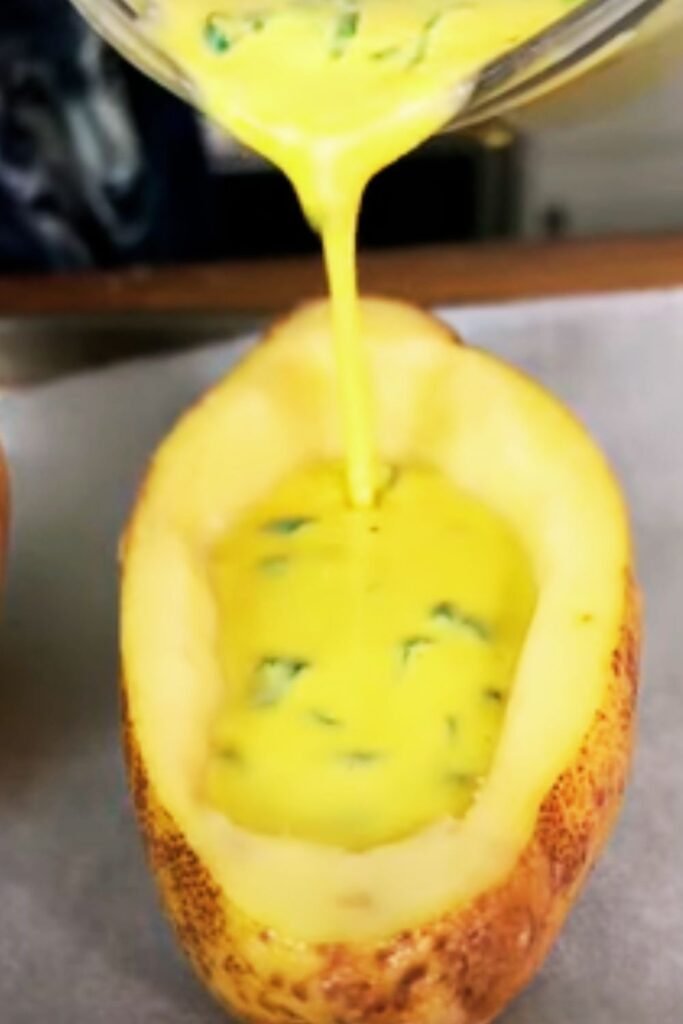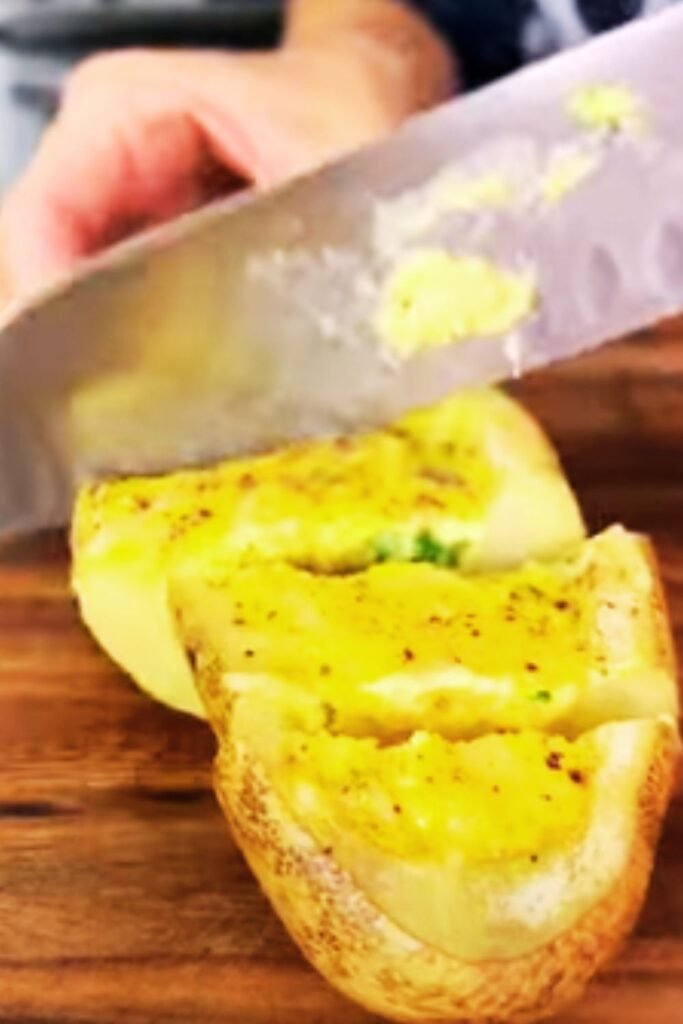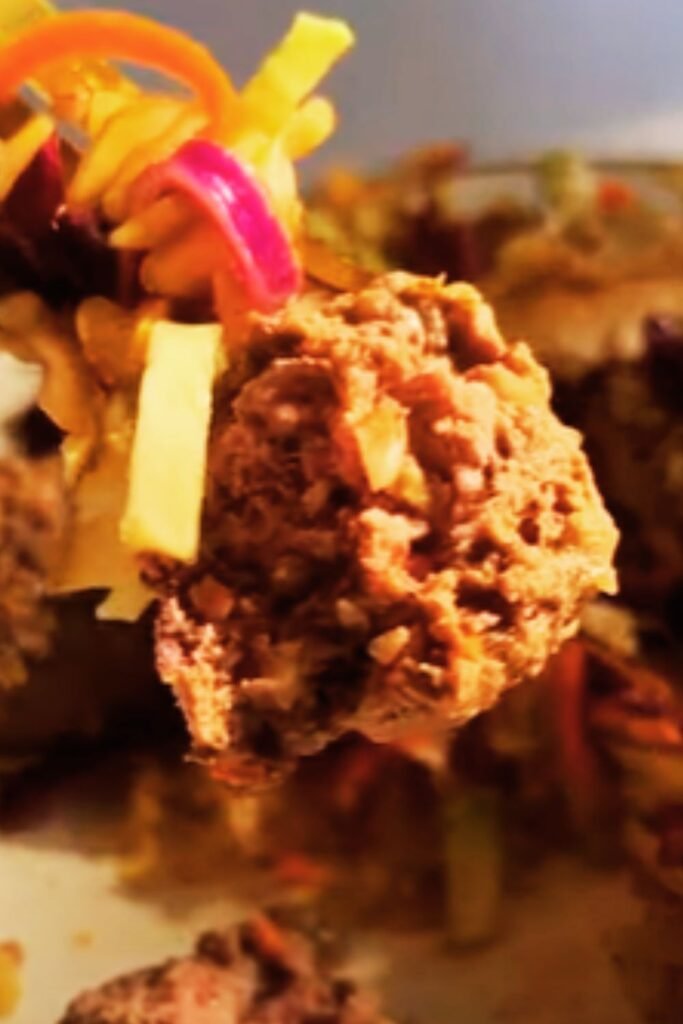When I first discovered the magic of combining eggs with roasted potatoes in boat form, my breakfast game completely transformed. These Paleo Whole30 Egg Potato Boats have become my go-to morning meal that satisfies every craving while keeping me aligned with my health goals. There’s something incredibly satisfying about cracking a fresh egg into a perfectly hollowed-out potato boat and watching it bake to golden perfection.
My journey with these delicious boats started during my first Whole30 challenge when I desperately missed my usual breakfast sandwiches. I needed something hearty, filling, and compliant with both Paleo and Whole30 guidelines. After experimenting with various combinations, I landed on this winning formula that’s now a staple in my weekly meal prep routine.
What Makes These Egg Potato Boats Special
The beauty of these boats lies in their simplicity and versatility. I’ve crafted this recipe to be completely grain-free, dairy-free, and refined sugar-free while delivering maximum flavor and nutrition. Each boat serves as its own individual portion, making them perfect for meal prep or feeding a crowd during weekend brunches.
Key Benefits I’ve Discovered:
- Naturally gluten-free and Paleo-compliant
- Whole30 approved when made without cheese
- High in protein and healthy fats
- Customizable with various toppings
- Perfect for meal prep and freezing
- Kid-friendly and crowd-pleasing
Essential Ingredients Breakdown
Potato Selection Guide
Russet Potatoes: My preferred choice for their fluffy interior and ability to hold their shape when baked. The starchy content creates the perfect texture contrast with the creamy egg.
Sweet Potatoes: An excellent alternative that adds natural sweetness and extra beta-carotene. I use these when I want a slightly sweeter flavor profile.
Red Potatoes: Work well for smaller, individual portions. Their waxy texture holds up beautifully during baking.
Protein Components
Pastured Eggs: I always opt for pastured eggs when possible. The rich, orange yolks create a beautiful presentation and provide superior nutrition compared to conventional eggs.
Optional Protein Additions:
- Sugar-free bacon pieces
- Compliant breakfast sausage
- Leftover shredded chicken
- Turkey breakfast sausage

Detailed Recipe Instructions
Ingredients List
For the Potato Boats:
- 4 large russet potatoes (approximately 8-10 oz each)
- 2 tablespoons avocado oil
- 1 teaspoon sea salt
- 1/2 teaspoon black pepper
- 1/2 teaspoon garlic powder
- 1/2 teaspoon paprika
For the Egg Filling:
- 8 large pastured eggs
- 1/4 cup coconut milk (full-fat, canned)
- 1 tablespoon fresh chives, finely chopped
- 1 tablespoon fresh parsley, chopped
- 1/2 teaspoon sea salt
- 1/4 teaspoon black pepper
Optional Toppings:
- 4 strips sugar-free bacon, cooked and crumbled
- 1/4 cup green onions, sliced
- 1 avocado, diced
- Hot sauce or salsa (Whole30 compliant)
Step-by-Step Preparation
Preparation Phase (15 minutes):
- Preheat and Prepare: I start by preheating my oven to 425°F (220°C). This high temperature ensures the potatoes develop a crispy exterior while maintaining a fluffy interior.
- Potato Selection: I carefully select uniform-sized potatoes to ensure even cooking. Each potato should be scrubbed clean and patted completely dry.
- Initial Baking: I pierce each potato 8-10 times with a fork to prevent bursting. Then I rub each potato with avocado oil and sprinkle with coarse sea salt before placing them directly on the oven rack.
First Baking Stage (45-55 minutes):
- Bake Until Tender: The potatoes bake for 45-55 minutes until they yield slightly when gently squeezed with an oven mitt. The skin should be crispy and golden.
- Cooling Period: I remove the potatoes and let them cool for 10 minutes. This cooling time prevents the eggs from cooking too quickly when added.
Boat Creation Phase:
- Hollowing Process: I slice each potato lengthwise, creating a deep boat shape. Using a spoon, I carefully scoop out most of the flesh, leaving about 1/4 inch of potato along the walls and bottom.
- Seasoning the Boats: I brush the inside of each boat with avocado oil and season with salt, pepper, garlic powder, and paprika. This step adds flavor and helps prevent the eggs from sticking.

Egg Addition Phase:
- Egg Preparation: I crack each egg into a small bowl first, then gently pour it into the potato boat. This method prevents broken yolks and allows for better control.
- Seasoning: I drizzle each egg with a small amount of coconut milk and sprinkle with salt, pepper, and fresh herbs.
Final Baking Stage (12-18 minutes):
- Second Bake: The boats return to the oven for 12-18 minutes, depending on desired egg doneness. I prefer my yolks slightly runny, so I aim for 12-14 minutes.
- Final Touches: I remove the boats when the egg whites are set but yolks remain slightly jiggly. The residual heat continues cooking them to perfection.
Nutritional Analysis and Benefits
Comprehensive Nutritional Breakdown
| Nutrient | Per Serving (1 boat) | % Daily Value | Health Benefits |
|---|---|---|---|
| Calories | 285 | 14% | Sustained energy release |
| Protein | 14g | 28% | Muscle maintenance and satiety |
| Carbohydrates | 35g | 12% | Complex carbs for steady energy |
| Dietary Fiber | 4g | 16% | Digestive health support |
| Fat | 9g | 14% | Hormone production and absorption |
| Vitamin A | 180 mcg | 20% | Eye health and immune function |
| Vitamin C | 12mg | 13% | Antioxidant protection |
| Potassium | 620mg | 13% | Heart health and muscle function |
| Iron | 2.1mg | 12% | Oxygen transport and energy |
| Folate | 28 mcg | 7% | Cell division and DNA synthesis |
Macronutrient Distribution
Carbohydrates (49%): The complex carbohydrates from potatoes provide sustained energy without the blood sugar spikes associated with refined grains.
Protein (20%): High-quality complete protein from eggs supports muscle maintenance and provides essential amino acids.
Fat (31%): Healthy fats from avocado oil and egg yolks support hormone production and nutrient absorption.
Paleo and Whole30 Compliance Guide
Paleo Principles Alignment
Allowed Ingredients:
- Potatoes (now widely accepted in Paleo community)
- Eggs (perfect Paleo protein source)
- Avocado oil (stable cooking fat)
- Fresh herbs and spices
- Coconut milk (natural, unprocessed)
Avoided Ingredients:
- Dairy products (butter, cheese, milk)
- Grains (wheat, oats, rice)
- Legumes (beans, lentils, peanuts)
- Refined sugars and artificial sweeteners
- Processed vegetable oils

Whole30 Specific Considerations
During my Whole30 experiences, I’ve learned that these boats perfectly align with program guidelines when prepared correctly:
Compliant Elements:
- No added sugars or sweeteners
- No grains or pseudo-grains
- No dairy products
- No legumes or carrageenan
- Whole, unprocessed ingredients
Common Pitfalls to Avoid:
- Some bacon contains sugar (read labels carefully)
- Certain hot sauces contain non-compliant ingredients
- Pre-shredded vegetables may contain anti-caking agents
- Some coconut milk brands contain guar gum
Advanced Preparation Techniques
Meal Prep Strategies
Weekly Batch Preparation:
I’ve perfected a system for preparing these boats in advance. Every Sunday, I bake 8-12 potatoes and hollow them out, storing the scooped potato flesh separately for other recipes like cauliflower mash or breakfast hash.
Storage Methods:
- Unbaked boats: Refrigerate up to 3 days
- Fully cooked boats: Refrigerate up to 4 days
- Freezer storage: Up to 2 months (wrap individually)
Reheating Instructions:
- From refrigerated: 350°F for 8-10 minutes
- From frozen: 375°F for 15-20 minutes
- Microwave option: 60-90 seconds on medium power
Flavor Variation Techniques
Mediterranean Style:
- Add sun-dried tomatoes and fresh basil
- Include compliant olives
- Finish with lemon zest
Mexican Inspired:
- Season with cumin and chili powder
- Add diced jalapeños
- Top with fresh cilantro and lime
Breakfast Sausage Version:
- Brown compliant breakfast sausage
- Mix with eggs before adding to boats
- Season with sage and fennel
Troubleshooting Common Issues
Perfect Egg Consistency
Runny Yolks (My Preference):
- Bake at 425°F for 12-14 minutes
- Eggs should jiggle slightly when gently shaken
Fully Set Eggs:
- Extend baking time to 16-18 minutes
- Cover with foil if tops brown too quickly
Overcooked Prevention:
- Start checking at 10-minute mark
- Remember eggs continue cooking from residual heat
Potato Boat Integrity
Preventing Breakage:
- Choose potatoes without eyes or soft spots
- Don’t hollow too aggressively
- Allow proper cooling before handling
Ensuring Even Cooking:
- Select uniform-sized potatoes
- Rotate halfway through first baking
- Use oven thermometer for accuracy
Serving Suggestions and Pairings
Breakfast Combinations
I love serving these boats alongside:
Fresh Vegetables:
- Sautéed spinach with garlic
- Roasted Brussels sprouts
- Grilled asparagus with lemon
Healthy Fats:
- Sliced avocado with lime
- Coconut butter spread
- Compliant nut butter on apple slices
Additional Proteins:
- Turkey breakfast sausage
- Smoked salmon (special occasions)
- Leftover roasted chicken
Brunch Entertainment
When hosting brunch gatherings, I create a “potato boat bar” where guests can customize their own boats with various compliant toppings:
Topping Station Ideas:
- Fresh herbs (chives, parsley, dill)
- Compliant hot sauces
- Diced vegetables (tomatoes, peppers, onions)
- Cooked proteins (bacon, sausage, chicken)
- Healthy fats (avocado, nuts, seeds)
Seasonal Adaptations
Spring Version
During spring, I incorporate fresh herbs from my garden and add asparagus pieces to the egg mixture. The bright flavors complement the earthy potatoes perfectly.
Summer Adaptation
Summer calls for fresh tomatoes, basil, and zucchini additions. I sometimes serve these boats at room temperature for outdoor gatherings.
Fall Comfort Style
In autumn, I use sweet potatoes and add warming spices like cinnamon and nutmeg to create a cozy, seasonal variation.
Winter Hearty Version
Winter versions include heartier proteins like leftover pot roast or extra bacon, making them more substantial for cold mornings.
Storage and Leftover Ideas
Creative Leftover Uses
Scooped Potato Flesh:
- Paleo breakfast hash with vegetables
- Mashed with coconut milk as a side dish
- Mixed into compliant meatballs as a binder
- Formed into breakfast patties and pan-fried
Day-Old Boats:
- Chopped and added to breakfast scrambles
- Crumbled into grain-free breakfast bowls
- Mixed with fresh herbs for a potato salad
- Incorporated into soup as a hearty addition
Freezing Guidelines
I’ve found that these boats freeze exceptionally well when properly prepared:
Pre-Freezing Steps:
- Cool completely after baking
- Wrap individually in parchment paper
- Place in freezer-safe containers
- Label with date and reheating instructions
Optimal Freezing Duration:
- Best quality: 1-2 months
- Safe consumption: Up to 6 months
- Texture may change slightly after 3 months
Health Benefits Deep Dive
Digestive Health Support
The combination of complex carbohydrates from potatoes and high-quality protein from eggs creates an ideal environment for digestive health. I’ve noticed improved satiety and stable energy levels when these boats are part of my regular rotation.
Blood Sugar Management
Unlike refined breakfast options, these boats provide steady glucose release due to their fiber content and protein combination. My energy levels remain consistent throughout the morning without the typical mid-morning crash.
Nutrient Density Analysis
Bioavailable Nutrients:
- Choline from eggs supports brain function
- Potassium from potatoes aids muscle function
- B-vitamins support energy metabolism
- Antioxidants from herbs provide cellular protection
Environmental and Sustainability Considerations
Sourcing Guidelines
I prioritize these sourcing practices for optimal nutrition and environmental impact:
Potato Selection:
- Choose locally grown when possible
- Organic varieties reduce pesticide exposure
- Support small-scale farmers through farmers markets
- Store properly to reduce food waste
Egg Quality:
- Pastured eggs provide superior nutrition
- Support humane farming practices
- Local sources reduce transportation impact
- Free-range options when pastured unavailable
Questions and Answers
Q: Can I make these egg potato boats ahead of time for meal prep?
Absolutely! I meal prep these boats regularly. You can prepare the potato boats up to 3 days in advance and store them in the refrigerator. When ready to eat, simply crack the eggs into the boats and bake for 12-15 minutes. For best results, I recommend bringing the boats to room temperature before adding the eggs.
Q: What’s the best way to prevent the eggs from overcooking?
The key is controlling your oven temperature and timing carefully. I bake at 425°F and start checking at the 10-minute mark. The eggs are done when the whites are set but the yolks still jiggle slightly when you gently shake the pan. Remember that the eggs continue cooking from residual heat even after removing from the oven.
Q: Are sweet potatoes a good substitute for regular potatoes in this recipe?
Yes! Sweet potatoes work wonderfully and add a natural sweetness that pairs beautifully with eggs. They typically take the same amount of time to bake initially, but may need 2-3 extra minutes for the final bake with eggs due to their denser texture. I love using sweet potatoes during fall and winter months.
Q: How do I know when the potatoes are properly baked before adding the eggs?
The potatoes should yield slightly when gently squeezed with an oven mitt, and the skin should be crispy and golden. I also insert a fork into the thickest part – it should slide in easily without resistance. This usually takes 45-55 minutes depending on potato size.
Q: Can I freeze these boats after they’re fully cooked?
Yes, they freeze very well! Cool completely, then wrap individually in parchment paper before placing in freezer-safe containers. They’ll maintain best quality for up to 2 months. To reheat, bake from frozen at 375°F for 15-20 minutes, or until heated through.
Q: What other proteins can I add to make these more filling?
I love adding compliant breakfast sausage, sugar-free bacon pieces, or leftover shredded chicken. For Whole30 compliance, make sure any added proteins don’t contain sugar, dairy, or other non-compliant ingredients. Smoked salmon is also delicious for special occasions.
Q: How can I prevent the potato boats from breaking when I hollow them out?
The key is letting them cool for at least 10 minutes after the initial bake. This makes them easier to handle. Use a spoon to gently scoop out the flesh, leaving about 1/4 inch of potato along the walls and bottom. Work slowly and don’t try to get every bit of potato out.
Q: Are there any vegetables I can add directly to the egg mixture?
Definitely! I often add finely diced bell peppers, spinach, or mushrooms directly to the eggs before pouring into the boats. Pre-cook any harder vegetables like peppers or mushrooms for 2-3 minutes to ensure they’re tender. Leafy greens like spinach can be added raw as they’ll cook during baking.
Q: What’s the best way to reheat leftover boats?
For best texture, I recommend reheating in the oven at 350°F for 8-10 minutes if refrigerated, or 15-20 minutes if frozen. You can also microwave them for 60-90 seconds on medium power, though the texture won’t be quite as good as oven reheating.
Q: Can I make smaller individual portions for kids?
Absolutely! Use smaller potatoes or even baby potatoes for kid-sized portions. Reduce the initial baking time to 35-40 minutes, and the final baking time with eggs to 8-10 minutes. Kids love being able to eat their own individual “boat” and it helps with portion control.